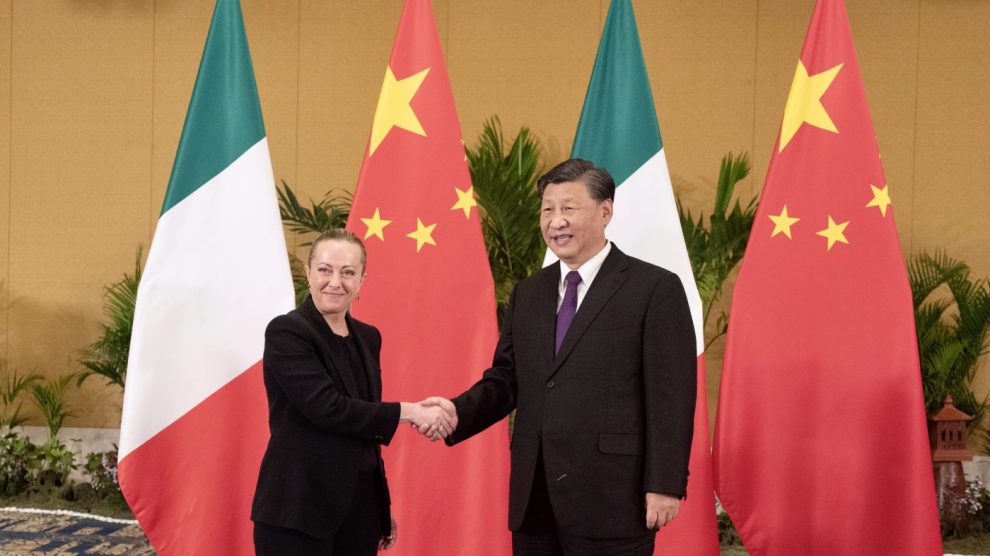The BRI exit issue is heading to Parliament. In a matter of days, Italy’s Foreign Minister Antonio Tajani will travel to China for an “important and difficult” visit, as he called it recently. He will inevitably touch upon the Belt and Road Initiative: Rome is clearly leaning towards exiting it, and his visit is also meant to prepare the ground for this, to minimise the eventual economic backlash from Beijing.
- Still, the Prime Minister sounded rather optimistic in her interview with Il Sole 24 Ore. “I do not foresee our relationship with China becoming complicated,” she said, noting that relations “are ancient, and there are great and mutual benefits, not only in the commercial sphere.”
- She then noted that the BRI choices “will have to be pondered and discussed in Parliament” (more on that below).
It’s (not) a matter of numbers. The Italian PM specified that “there is no direct relationship between that signature and trade relations.” The paradox, she added, is that Italy is the only G-7 country to have joined the BRI – but is “by no means the G-7 country or European country with the largest interchange with China. Which shows that there is no connection between the two.”
- “We will discuss this calmly and amicably with the Chinese government, and I am convinced that our relations will continue to be strong,” she remarked.
The China missions. In the interview, the PM did not mention her own upcoming visit to Beijing – which she had announced while in Washington and is conceivably one of the key dossiers on FM Tajani’s table. The latter will also discuss another forthcoming visit – that of President Sergio Mattarella in early 2024, to mark 700 years since Marco Polo’s death and affirm the importance of the strategic partnership between China and Italy.
- In all likelihood, Beijing is aware of Rome’s decision to leave and would also prefer a muted exit. Especially since the Chinese government will hold the third Belt and Road Forum in October to mark the first ten years of President Xi Jinping’s flagship initiative.
- The exit of the only G-7 country to have joined is certainly not good news, and it would be best to avoid fuelling their resonance by kicking off a harsh reaction against Italy.
Let Parliament legitimise it. In reiterating her desire to involve Parliament in the decision-making process, PM Meloni is probably mulling a vote on whether to drop out of the BRI. This would validate the decision and help avoid excessive animosity by relegating the issue to the trade commissions. After all, boosting exports was the chief reason for then-PM Giuseppe Conte’s 2019 decision to sign the Memorandum of Understanding on the BRI.
- Such a move would also force the opposition to pick a side. That’s especially relevant to the Democratic Party, which under Elly Schlein’s leadership has been drifting towards the positions of the Five Star Movement – headed by the very same Giuseppe Conte and representing the side of Parliament that sees China most favourably.
Focus on Ukraine. FM Tajani had already stated he would call on Chinese authorities to “actively [pressure] Moscow for the withdrawal of troops” from Ukraine. Still, it’s likely that Beijing will maintain its ambiguous position vis a vis Kyiv. Bloomberg reported that Russian President Vladimir Putin has already accepted the invitation to attend the Belt and Road Forum, which underscores his confidence in travelling to China – which does not recognise the International Criminal Court that convicted him of war crimes.




